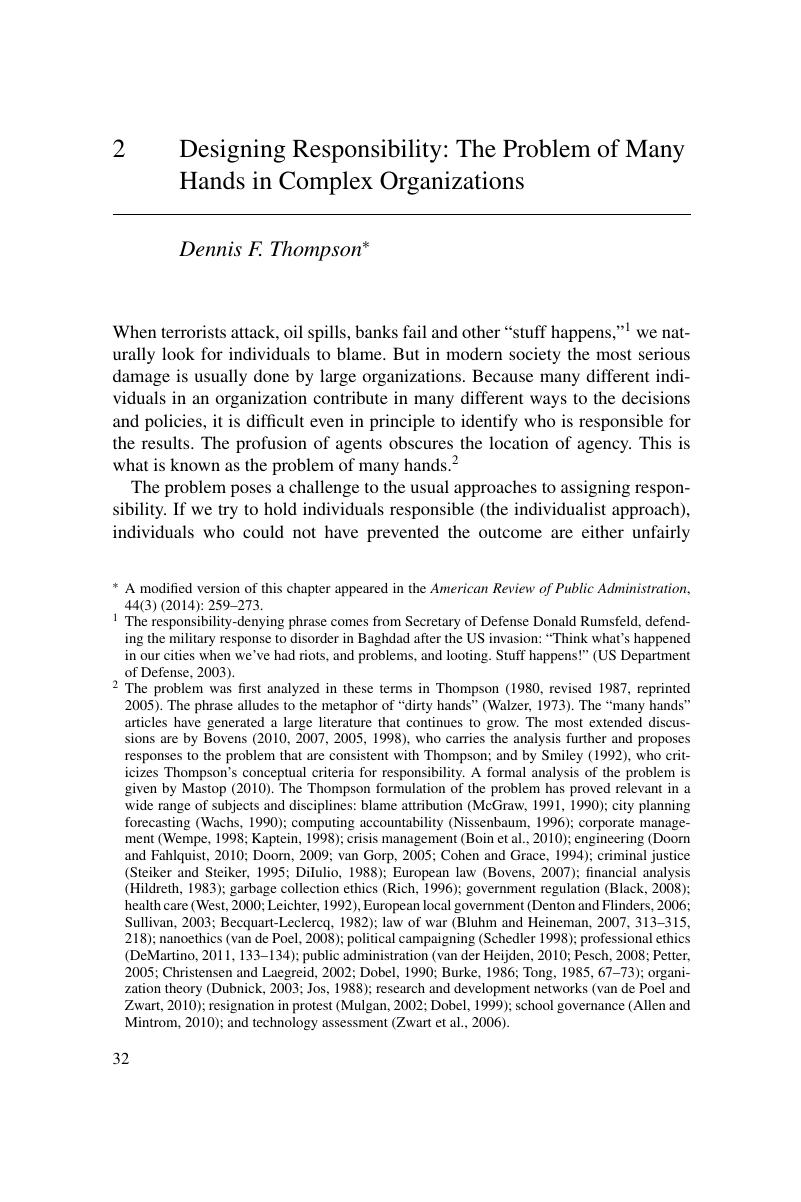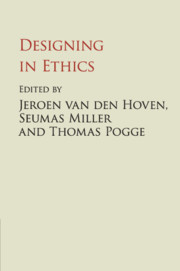Book contents
- Designing in Ethics
- Designing in Ethics
- Copyright page
- Contents
- Figures
- Tables
- Contributors
- Introduction
- 1 The Design Turn in Applied Ethics
- 2 Designing Responsibility: The Problem of Many Hands in Complex Organizations
- 3 Dealing with Moral Dilemmas through Design
- 4 Designing the Morality of Things: The Ethics of Behaviour-Guiding Technology
- 5 The Health Impact Fund: Aligning Incentives
- 6 Poverty, Exclusion and the Design of Microfinance Institutions
- 7 Designing-in-Ethics: A Compulsory Retirement Savings System
- 8 Pacifism: Designing a Moral Defence Force
- 9 An Anti-Corruption System for Police Organizations
- 10 Good Governance for the Commons: Design for Legitimacy
- 11 The Ethical Obligation to Beauty in the Design of Buildings
- Index
- References
2 - Designing Responsibility: The Problem of Many Hands in Complex Organizations
Published online by Cambridge University Press: 16 October 2017
- Designing in Ethics
- Designing in Ethics
- Copyright page
- Contents
- Figures
- Tables
- Contributors
- Introduction
- 1 The Design Turn in Applied Ethics
- 2 Designing Responsibility: The Problem of Many Hands in Complex Organizations
- 3 Dealing with Moral Dilemmas through Design
- 4 Designing the Morality of Things: The Ethics of Behaviour-Guiding Technology
- 5 The Health Impact Fund: Aligning Incentives
- 6 Poverty, Exclusion and the Design of Microfinance Institutions
- 7 Designing-in-Ethics: A Compulsory Retirement Savings System
- 8 Pacifism: Designing a Moral Defence Force
- 9 An Anti-Corruption System for Police Organizations
- 10 Good Governance for the Commons: Design for Legitimacy
- 11 The Ethical Obligation to Beauty in the Design of Buildings
- Index
- References
Summary

- Type
- Chapter
- Information
- Designing in Ethics , pp. 32 - 56Publisher: Cambridge University PressPrint publication year: 2017
References
- 8
- Cited by



